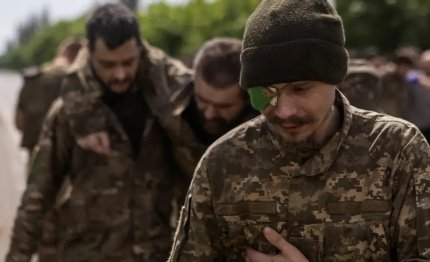As noted by Pablo de Greiff, a representative of the independent international UN investigative commission investigating Russian war crimes in Ukraine, torture against Ukrainian prisoners is a coordinated state policy of the aggressor country, which proves that the Russians committed crimes against humanity.
Points of attention
- The UN accuses Russia of engaging in a coordinated state policy of torturing Ukrainian prisoners as a form of collective punishment.
- Evidences, including testimonies from former employees of the Russian Federal Penitentiary Service, reveal the ruthless treatment of Ukrainian prisoners through the use of physical force, electric shock, and sexual violence.
- The UN commission emphasizes that Russia's actions amount to crimes against humanity, with documented cases of rape, castration, and other forms of torture inflicted on Ukrainian prisoners.
- Former prisoners, including military personnel and activists, have described the severe physical and psychological effects of torture, leading to long-term complications and disabilities.
- Despite the accusations, Russian officials dismiss the claims, labeling the speakers as 'neo-Nazis' and denouncing the event as 'anti-Russian.'
The UN accuses Russia of crimes against humanity for torturing Ukrainian prisoners
During the UN Security Council meeting in the Arria format, Greiff emphasized that for 2.5 years, the UN commission has been studying numerous cases of torture by Russian law enforcement and penal agencies against Ukrainian citizens in all occupied territories and directly in the aggressor country.
Intimidation of detainees, periodic beatings…, prohibition to sit, sleep deprivation, forced physical exercise, and prolonged exposure to nudity are some of the established practices for which we have evidence, the UN commission representative emphasizes.

According to him, the Russians are subjecting Ukrainian prisoners to severe collective punishment for any behavior perceived as a violation.
What is known about the use of torture and ill-treatment of Ukrainian prisoners of war?
Former employees of Russia's Federal Penitentiary Service testified that senior management ordered them to treat Ukrainian prisoners cruelly and mercilessly.
Greiff emphasized that during interrogations of prisoners of war and captured civilians, physical force, electric shock torture, and strangulation are used on them.
Another disturbing element is the use of sexual violence in the form of torture... Individual acts of rape, electric shock of the genitals, castration, and sexual mutilation have been documented, the commission representative noted.
Former prisoners, he said, have described the severe physical and psychological effects of torture, often with long-term complications, including disability.
The event was attended by former prisoners of war, the National Guard of Ukraine instructor Valeriy Horishny, who participated in the defense of Mariupol; Crimean Tatar activist Nariman Dzhelal, sentenced to 17 years in prison by the so-called "Supreme Court of Crimea"; and human rights activist and military officer Maksym Butkevych, sentenced in the Russian Federation to 13 years in a maximum-security colony.
The Russian Deputy Permanent Representative to the UN, Dmitry Polyansky, called the speakers "neo-Nazis" and the event "anti-Russian."









